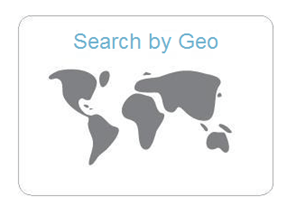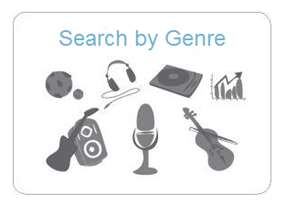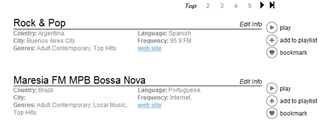The software giant Microsoft has announced that it is relaunching its internet search engine with a new name and a new look, in a bid to take on Google.
The new Microsoft search engine, called Bing, goes live in stages between Friday and June 3. It will, Microsoft claims, offer users a more refined search experience capable of satisfying queries more quickly than any rival search engine.
At launch, the new service will have a strong American bias, with a UK version "soft-launching" as a Beta test version. A 60-strong London-based team will work on improving the localisation of search results for the UK, with a view to a full launch in around six months.
The man in charge of the UK project is Microsoft's UK Consumer Vice President Ashley Highfield, previously a key player in the launch of the BBC's wildly successful iPlayer. "There is a huge opportunity in the search market," he told The Times, "given that it’s dominated by one player, and given that research shows a high level of dissatisfaction among a high level of the user base. We know that only around a quarter of people get what they are looking for on the first search."
Mr Highfield acknowledged that Microsoft's current search engine, Windows Live, has always "underwhelmed people", although it ranks third by usage, behind Yahoo and "a very long way" behind Google.
Google is the brand very much in Microsoft's sights. In the last financial year, the world's leading search engine declared net income of $4.34bn, on revenue of $22.12bn, largely from paid advertising associated with search keywords. The challenge for Microsoft is to make a search engine so demonstrably superior that it breaks internet users' Google habit.
"We have what we think are a series of Google-beating features," Mr Highfield said. "Google is essentially the same as it was a decade ago. The world has moved on, but search absolutely hasn’t."
The new features in Microsoft's search engine include the ability to "guess" what the user is looking for, then offer suggestions based on that guess.
"Our search engine knows what it is you enter into that search box," Mr Highfield said. "If you enter Nikon D80, it will know that you are looking for a camera. From that moment on, a lot of things happen differently. With Google you get 500,000 search results in decreasing relevance. With us, because we know it’s a camera, we immediately open up categories on the left-hand side, breaking it down into the things you are likely to be looking for, such as where to buy Nikon D80s, or how to use Nikon D80s."
Bing's other key feature is the way it displays search results. If the search returns video clips, for example, these appear as thumbnail images at the top of the search results. Hovering over the thumbnail plays a key part of the video, so users have no need to leave the search results page to ensure they have the clip they were looking for.
Similarly, a search for a large company such as British Airways will return not only its homepage, but a summary of the most likely desired information on that homepage, including the address, customer services telephone number and even the ability to search within the BA site directly from the Bing search page.
Reaction across the online advertising industry to Microsoft’s new product has been largely positive.
Alex Hoye, CEO of the Latitude Group, a leading internet advertising and marketing consultant, told The Times: “In terms of user experience it’s very positive. I like the fact that it points you down certain paths. If this were launched four years ago, before every grandmother was using Google, it would be a clear market leader.”
“There's no point in doing just the same as Google, because you won't beat them,” Rebecca Jennings, of the internet consultancy Forrester Research, said. “You need something that takes it a step further and offers a different attitude, and that's what they've done. Microsoft is asking what it is people are wanting to achieve when they make a search. Google works very cleverly, but it's fundamentally about where something is mentioned. This is about what you are actually trying to achieve.”
Ten years ago, when the current model for search engines appeared, there were around 160,000 pages on the internet. Today there are 160 million. Any company that finds the best way of delivering what its users want will attract more users, and therefore paid, linked advertising. Companies such as Wolfram Alpha have already started to produce alternative search engines that use different parameters to produce their results.
The American launch of Bing will be backed by a huge marketing spend, which will follow here when the UK version comes out of Beta.
“It’s going to be very difficult for them to break the Google habit, because Google is such a familiar brand,” Andy Mihalop of the i-level online media agency said. “I can see people who do use it will become more engaged, but Microsoft is going to have to invest a huge amount in advertising to get people away from Google.
“Also, as far as advertising goes, our clients are still predominantly looking at market share. So for most advertisers Google will remain first choice, though I would like to see a successful challenger emerge.”
Mr Highfield is, naturally, more positive about his chances of success. “Advertisers are going to be able to start buying against categories with confidence that they will be against the right search,” he said. “I think we will get into a virtuous circle where both users and advertisers grow to love and trust search.”





